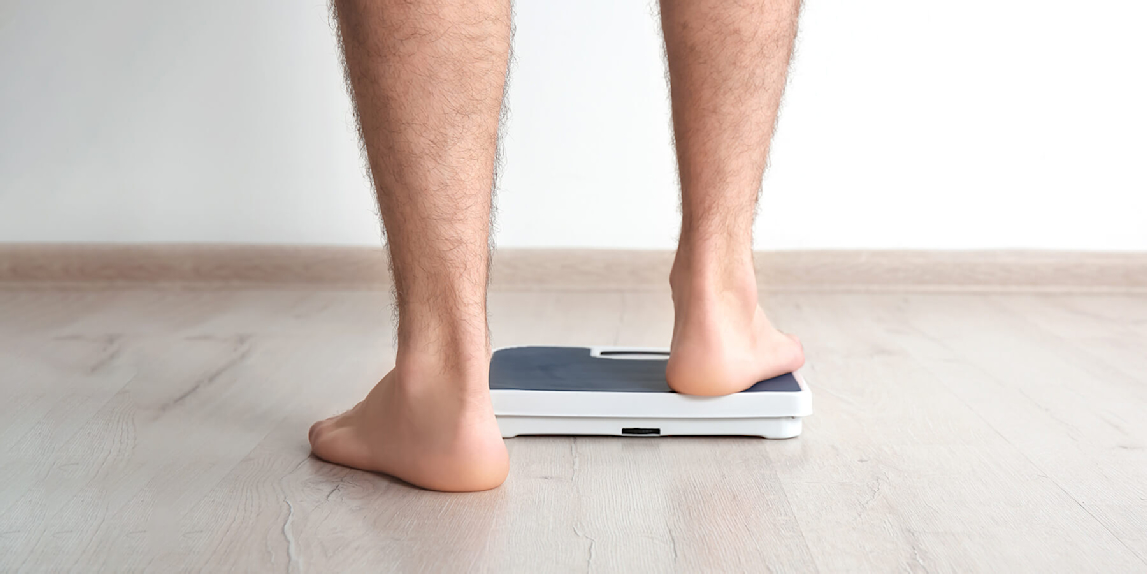
If the “black dog” of depression has reared its ugly head at some point in your life, then low testosterone levels may have been at play. But this is hardly the only possible consequence of low testosterone, which you can detect at home with the Everlywell Testosterone Test.
So keep reading to learn more about testosterone in men, including causes and symptoms of “low T.”
Wondering how to test your free testosterone levels at-home? Check if your testosterone hormone levels are too low or high with the Everlywell at-home Testosterone Test or the Men's Health Test.
Wondering how to test your free testosterone levels at-home? Check if your testosterone hormone levels are too low or high with the Everlywell at-home Testosterone Test or the Men's Health Test.
What is testosterone?
Testosterone is the primary hormone behind muscle-building, fat-burning, libido, and even strongly affects mood and energy.
The testicles are the main source of testosterone production in men while the ovaries are in charge of producing this sex hormone in women. However, in women, levels of testosterone are typically lower compared to men. However, abnormally low testosterone levels in women (as well as men) can contribute to symptoms and may indicate an underlying health issue.
In general, men begin to experience an increase in testosterone production during puberty, with testosterone levels gradually declining starting at about age 30. When natural testosterone levels begin to lower, both men and women can experience a number of different symptoms.
Signs and Symptoms of Low Testosterone in Men
Low testosterone levels in men can lead to symptoms that can affect many different aspects of health and well-being. Many men that experience a decrease in testosterone report sleep disturbances and insomnia, emotional changes such as depression, and issues related to their sexual performance/desires. Along with these symptoms, some men even face changes in fertility, decreased strength, and weight gain.
Athletic performance can also suffer due to loss of energy, as well as increased difficulty building muscle and burning fat. Having greater body fat and less muscle can then potentially increase the risk of heart disease, diabetes, and other conditions dependent on an optimal metabolism.
Signs of low testosterone in men can include:
Loss of motivation
Low libido
Fat gain
Sleep problems and/or fatigue
Low testosterone can cause unwanted health consequences in men. The effects of low testosterone can lead to:
Osteoporosis (where your bones become very brittle)
Infertility
Depression
Obesity
Erectile dysfunction (ED)
Loss of muscle mass
Having greater fat and less muscle can then potentially increase the risk of heart disease, diabetes, and other conditions dependent on an optimal metabolism.
Having greater body fat and less muscle can then potentially increase the risk of heart disease, diabetes, and other conditions dependent on an optimal metabolism.
Note that average levels of testosterone decrease as men age. Starting around age 30, testosterone decreases about 1% per year, on average. This decline is part of the normal aging process, so some older men develop abnormally low testosterone levels.
The Everlywell at-home Testosterone Test can help men identify if their hormone levels are lower than what’s typical for their age. If your testosterone levels are low, you can share your Everlywell results with your doctor, and in collaboration, the two of you can develop a plan for a healthier lifestyle and/or medication that may help improve your testosterone levels.
Causes of Low Testosterone in Men
What causes your testosterone to dip downwards? As it turns out, there are both direct and indirect causes of low T levels in both young and older men:
Testicular failure – resulting from genetic and metabolic disorders, as well as autoimmune diseases and testicular trauma – is a direct cause.
Indirect causes of low testosterone include excessive exercise, malnutrition, synthetic steroid abuse, and hormonal imbalances in the pituitary gland.
What is Testosterone Replacement Therapy and Is it an Effective Treatment?
Testosterone replacement therapy, or TRT, can help treat some low testosterone symptoms in men. Doctors often recommend TRT as a treatment option for male hypogonadism, a condition in which the body doesn’t make enough testosterone (often due to testicular failure). Ultimately, this condition can lead to symptoms of low testosterone in males.
Testosterone therapy can improve muscle strength and erectile function in hypogonadal men, as well as boost energy and protect against bone loss.
Testosterone can be administered in several different ways, including skin patches, gels applied to the skin, injections, and implants.
Testosterone replacement therapy and prostate cancer: is there a link?
In past decades, many scientists believed that higher levels of total testosterone came with an increased risk of prostate cancer. (Total testosterone is a measure of the total amount of testosterone circulating in your bloodstream – including testosterone that’s bound to other compounds as well as testosterone that is unbound or “free.”)
It was thought that low testosterone production actually helped protect against prostate diseases, so restoring testosterone to normal levels – through testosterone therapy – could mean a greater chance of prostate cancer.
So could prostate cancer be a potential risk of TRT?
Not likely, says today’s researchers. While initial studies (first published in 1941) suggested a link between high T levels and prostate cancer, much more modern research – using much more rigorous methods – has convincingly shown that testosterone therapy comes with “little if any risk” of prostate cancer.
Signs and Symptoms of High Testosterone in Men
Men with high testosterone can experience a variety of troubling symptoms and possible health consequences. Excess testosterone can lead to more aggressive and irritable behavior, more acne and oily skin, even worse sleep apnea (if you already have it), and an increase in muscle mass. With too much testosterone pumping through your system, you may have a lower sperm count (due to decreased sperm production) and shrunken testicles.
High Testosterone Causes
Excess testosterone in men can result from testicular or adrenal tumors. Even if these tumors are benign – that is, they aren’t malignant or cancerous – they can still boost testosterone levels to unhealthy levels, as can steroid use and abuse.
And if you don’t treat your high testosterone levels? Elevated testosterone will raise your “bad” cholesterol levels, and can thus lead to heart health issues – potentially resulting in a heart attack, cardiovascular disease, or stroke. Risk of sleep apnea and infertility is also heightened if you have high testosterone levels.
Some men actually have a genetic predisposition for developing high levels of testosterone. Studies show that these individuals that fall within this category are at a much higher risk for developing blood clots, heart disease, and a variety of other cardiovascular issues. Because of the severity of this issue, it is essential that men with high testosterone are tested and are aware of their potential risks.
Conclusion
Because high and low male testosterone levels are both disruptive to your health, it’s critical that your male sex hormones are within a healthy range. But how can you check your testosterone to see if you have a deficiency or excess? You can easily measure your testosterone with the Everlywell Testosterone Test or the Men's Health Test, and discuss any unhealthy levels with your healthcare provider.
